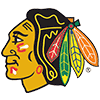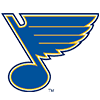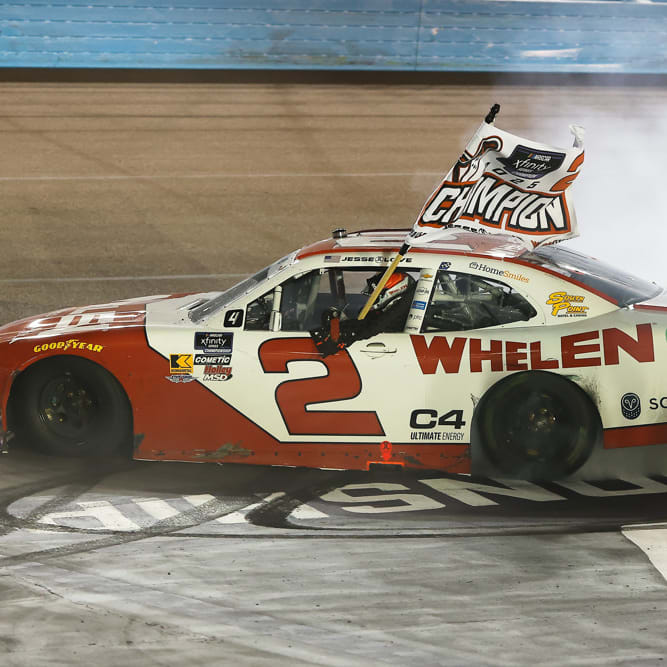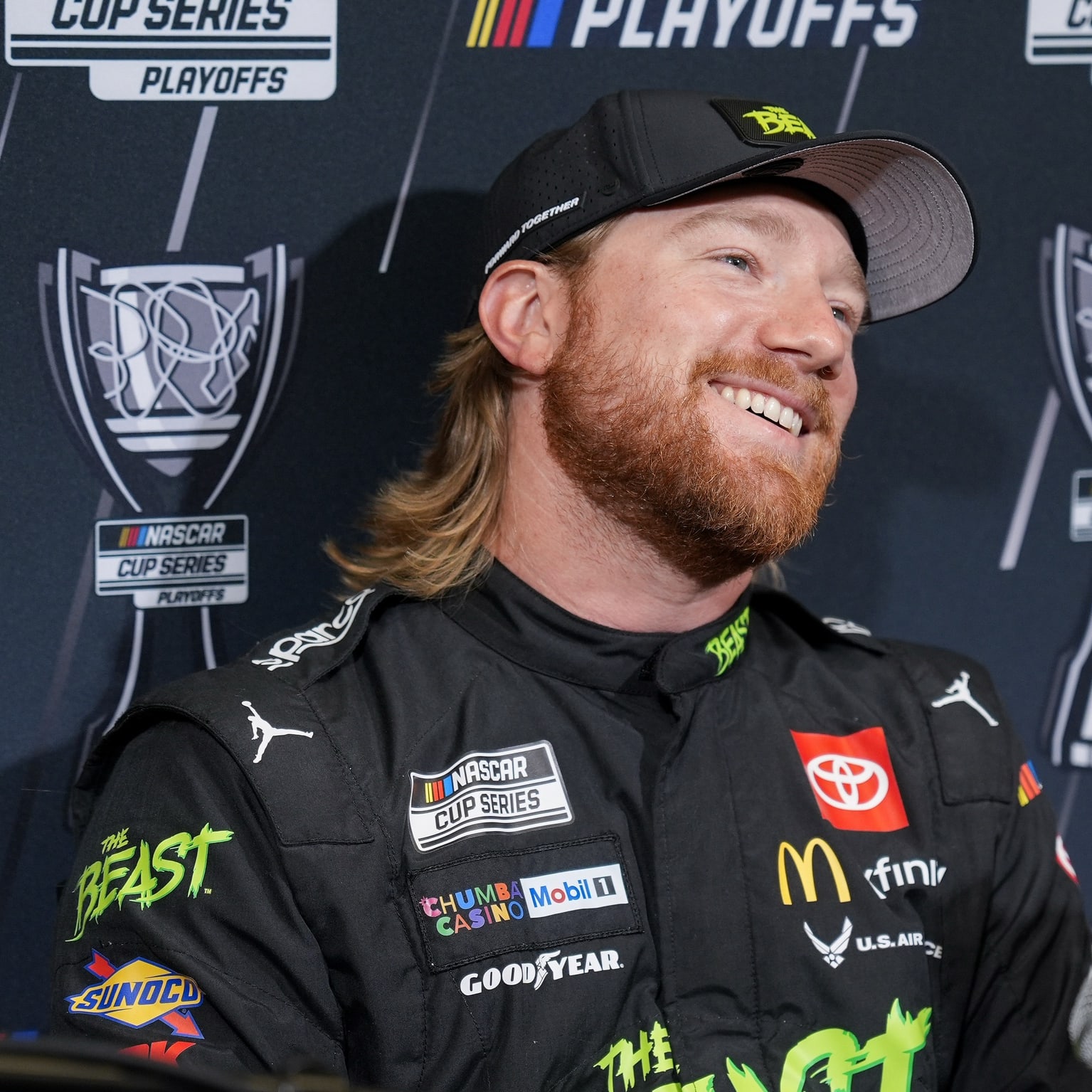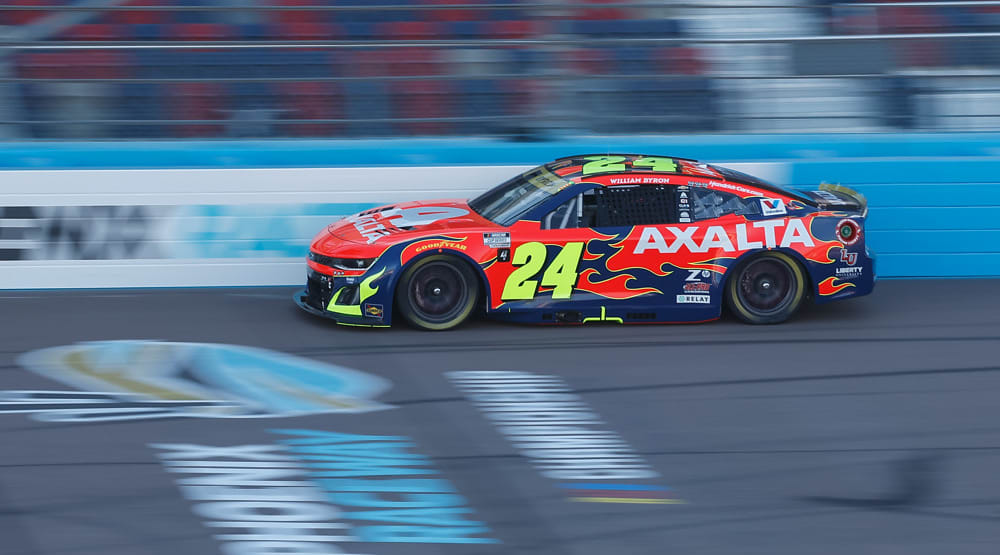The 2011 NASCAR Sprint Cup season got off to a roaring start with Sunday's Daytona 500. The race broke records in a number of categories - youngest winner, most leaders, most lead changes and most cautions.
Trevor Bayne drove like a champion Sunday. He was smart, fast and courteous as he put himself into position to win. He was clearly the one to beat and deservedly becomes the race's youngest winner.
Pairs of two were what it took to get to the front of the pack. The Richard Childress Racing cars were clearly the fastest, along with the pair of Jamie McMurray and Juan Pablo Montoya in the Earnhardt-Ganassi Racing cars, and both teams of drivers worked well together throughout. Spins were the result of the new drafting procedures, and a number of teams had their day made a bit rougher by such situations. It turned into a slight game of survival of the fittest as the race wore on, and intelligent decisions, coupled with a fast partner determined the day's victor.
With Daytona's new pavement, tire changes were almost a rarity. A few teams went multiple stops without changing any tires. As a result handling was not an issue as it had been in years past, but when damage disrupted aerodynamics, it was all the drivers could do to retain control and not spin in the draft.
Now it's on to Phoenix, where Carl Edwards, who finished a close second to Bayne at Daytona, looks to carry his momentum
The 2011 NASCAR Sprint Cup season got off to a roaring start with Sunday's Daytona 500. The race broke records in a number of categories - youngest winner, most leaders, most lead changes and most cautions.
Trevor Bayne drove like a champion Sunday. He was smart, fast and courteous as he put himself into position to win. He was clearly the one to beat and deservedly becomes the race's youngest winner.
Pairs of two were what it took to get to the front of the pack. The Richard Childress Racing cars were clearly the fastest, along with the pair of Jamie McMurray and Juan Pablo Montoya in the Earnhardt-Ganassi Racing cars, and both teams of drivers worked well together throughout. Spins were the result of the new drafting procedures, and a number of teams had their day made a bit rougher by such situations. It turned into a slight game of survival of the fittest as the race wore on, and intelligent decisions, coupled with a fast partner determined the day's victor.
With Daytona's new pavement, tire changes were almost a rarity. A few teams went multiple stops without changing any tires. As a result handling was not an issue as it had been in years past, but when damage disrupted aerodynamics, it was all the drivers could do to retain control and not spin in the draft.
Now it's on to Phoenix, where Carl Edwards, who finished a close second to Bayne at Daytona, looks to carry his momentum onto one of his best tracks.
UPGRADE
Trevor Bayne – Making your first start in the Daytona 500 carries a tremendous burden of pressure, but Bayne handled that pressure like a veteran Sunday afternoon. Not only was he fast, but also he was smart in the draft and intelligent enough to back away from dangerous situations other young rookies would not recognize. Bayne impressed everyone at Daytona, including Jeff Gordon, who was one of Bayne's best drafting partners. In three NASCAR Nationwide starts at Phoenix International Raceway, Bayne's best finish is 14th, and his career average finish is 20.0. He chose to run for the Nationwide series championship, and not Sprint Cup, but will run in the first five Cup races. You saw history made Sunday with his win.
Carl Edwards – Edwards was a name that lurked in the shadows the entire week at Daytona. He finished 10th in his Duel, but that was his most noticeable effort until the closing two laps of the Daytona 500. He came from the back of the pack with a full head of steam but couldn't make the one last pass to take the victory. It looked like Edwards would take the lead, but Bayne closed the door at the last moment. Edwards has a great record at Phoenix, winning the last race and scoring a top-10 in the prior race. His average finish in his last five Phoenix starts is 7.6, and that should be reason enough to make sure he is on your fantasy roster next weekend.
Kurt Busch – He wasn't able to pull off the trifecta of winning the Bud Shootout, his Duel and the Daytona 500, but Busch comes away from Sunday with a top-five and a scorching start to the year. Busch had a ton of momentum behind him at Daytona, and being the only Dodge team doesn't seem to be dragging him down. His average finish in the last five Phoenix races is 11.0, with two top-fives and two top-10s in that span. Busch may be off to a flier in 2011, and if he can keep the performance level high through the start of the regular season, perhaps Busch will be a championship threat.
Paul Menard – In his first race with Richard Childress Racing, Menard made it clear that he was worthy of the seat. He held station at the front of the Daytona 500 for a healthy chunk of the race, and was clearly among the fastest cars, along with his teammates. This opportunity with RCR is Menard's best chance for his best season, and he got off on the right foot in the biggest race of the season. Menard has no prior results worth talking about at Phoenix. His career average finish at the track is 25.5 in eight career starts. Menard might not have the Phoenix resume fantasy owners want to see, but he could still be a valuable option.
Regan Smith – One of the more impressive stories of 2011 Speedweeks was Smith, who outperformed his team's expectations, and possibly his own. He finished second in his Duel and was among the leaders for much of Sunday's big prize, only until the final laps. Smith has shown flashes of speed throughout his career, but has never managed to make that speed pay off in a points-race situation. His best chance of scoring a top finish came Sunday when everything seemed to be working right for him and Furniture Row Racing. Smith's best finish at Phoenix is a pair of 23rd-place results. He may not be the best fantasy option this week, but he could become a valuable third or fourth driver as the season progresses.
DOWNGRADE
Kevin Harvick – One of the prime picks to challenge for victory in the Daytona 500 lasted only 20 laps until his engine blew. Engine troubles are a rarity for Harvick, and the Richard Childress Racing engine program have typically been bullet proof. This time the failure struck at a very inopportune moment. He leaves Florida with just a few championship points and heads to Phoenix, where he scored two top-10 finishes in his last five outings. His average finish at the desert track is 16.0 in the last five starts there. Harvick has two wins at the track, and will be out to get his championship effort steaming along after a sputtering start in Daytona.
Jamie McMurray – The 2010 Daytona 500 champion showed that last year was not a fluke. McMurray had a very strong car, and when partnered with teammate Juan Pablo Montoya, it seemed like the two would be in contention for the win coming off the final turn. Unfortunately, the afternoon was not to be when McMurray lost a cylinder in the closing segment. McMurray scored three important wins in 2010, and narrowly missed making the Chase runners. The 2011 season could be a good one for McMurray and Earnhardt-Ganassi Racing as they look to build upon last season's success. McMurray finished 10th in his last visit to Phoenix International Raceway and has a career average finish of 20.2 in 15 starts.
Matt Kenseth – While sporting some damage from incidents prior in the race, Kenseth was caught by teammate Greg Biffle and spun hard into the wall, ending his day. Kenseth didn't have a great shot at winning after damage to his car slowed him down and put him in the midst of the pack, but he was hanging on the lead lap and anything could have happened. He finished fifth in the Sprint Cup standings in 2010 and eighth in last year's Daytona 500, but just 34th this year. Kenseth will have a great opportunity to get back on the horse this weekend at Phoenix. He scored two top-10 finishes at the track in the last two races, and he should be in line for another.
Jeff Burton – Another casualty of the Childress engine program was Burton, who had been running at the front of the field at the mid-way point of the race, only to end his afternoon a few laps after with smoke pouring out of the engine. Burton and Childress could still be championship contenders in 2011, but the team will need to go back to the design books with their engine building. This week could start that progress with Burton scoring an average finish of 14.0 in the last five races there. Burton also owns two victories and six top-fives at the Arizona track. He could be a good fantasy choice next week despite Sunday's issues.
Brian Vickers – Vickers made his return to regular Sprint Cup action in Sunday's Daytona 500, but was quickly caught in a large wreck during the opening stages of the race. He eventually made repairs and headed back out to pick up some points, but was unable to make it stick, and he stalled on track, bringing out yet another caution period. It wasn't the triumphant return Vickers had been looking for, but just being back in the thick of the action has to feel good. It may take a few weeks for Vickers to get back on the horse, but don't count him out yet. His best Phoenix finish came in 2005 when he finished fifth in the Subway Fresh 500. Fantasy owners should give Vickers one more week on the bench as he regains his stride.












